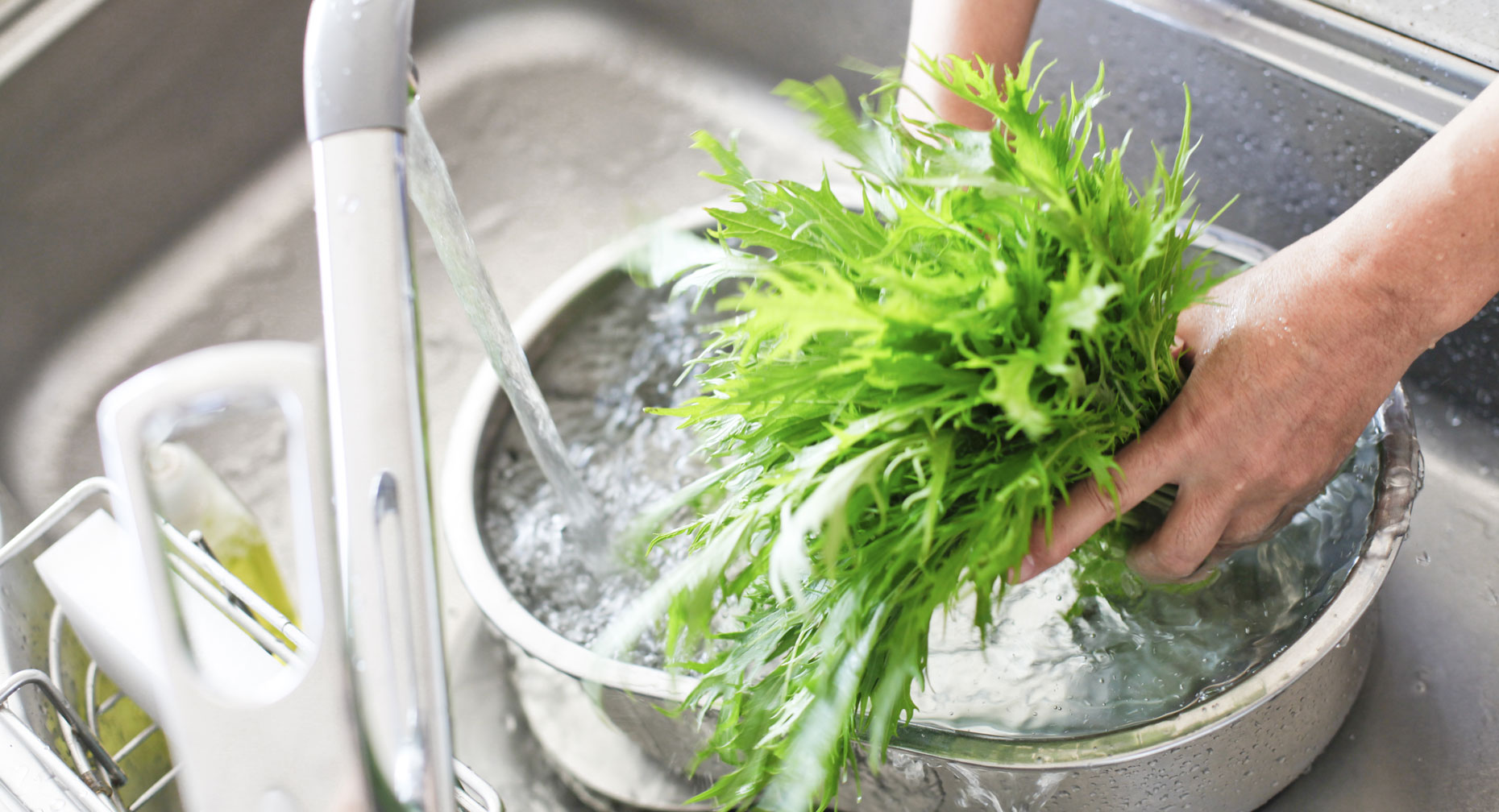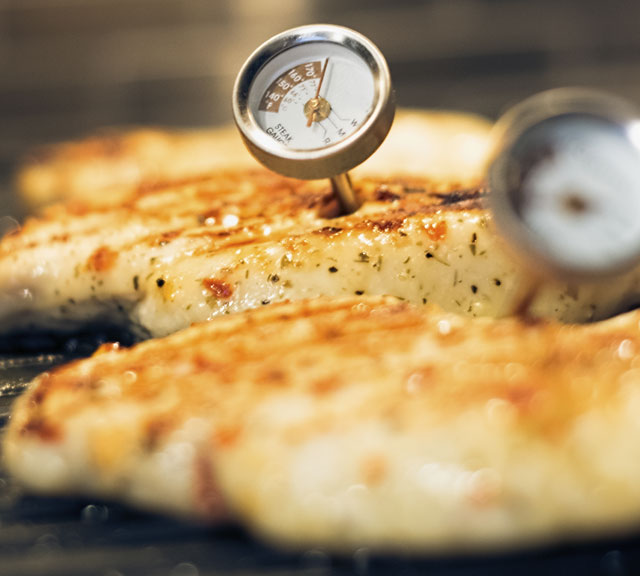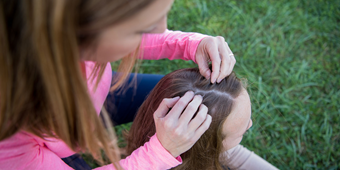Don’t Make Yourself Sick! Use Your Food Safety Smarts

Answer a few questions and we'll provide you with a list of primary care providers that best fit your needs.
When it comes to preventing food poisoning and other illnesses caused by food, a big responsibility falls on the person who buys, stores, and prepares the food. Is that you? If so, read on!
Defrost frozen food in the refrigerator or in the microwave, not on the counter.
“Germs can grow in food if it’s not handled properly, and on any surface including cutting boards and sponges,” points out Andrew Diller, MD, of Brookville Family Care. “When those germs get inside your body, they can cause diarrhea, vomiting, and headache. In some cases, food poisoning can be fatal if it is not treated promptly.” Dr. Diller recommends following these guidelines to keep safe the food you prepare.
Before You Buy
Be sure to check:
- For a good sell-by date
- That seals and wrappers aren’t broken, torn or leaking
- That cans aren’t bulging or dented, jars aren’t cracked, and lids are closed tightly
- That eggs are not cracked or broken
Storing New Food
- Keep cold foods cold, below 40°F.
- Put cold foods in the refrigerator or freezer as soon as possible.
- Defrost frozen food in the refrigerator or in the microwave, not on the counter.
Storing Other Food
- Put leftovers in your refrigerator right away.
- Throw away food that has been left out for more than two hours.
- Pack school lunches in an insulated bag with an ice pack.
- Do not reuse a marinade or pour it over cooked food.
- Keep raw foods away from cooked foods.
Wash Everything Often
- Wash your hands often with warm, soapy water, especially after touching raw meat or poultry.
- Rinse all fruits and vegetables.
- Wash surfaces and utensils after each use.
Proper Prep and Cooking
- Use separate cutting boards and plates for produce and for meat, poultry, seafood, and eggs.
- Keep hot foods hot, even when serving.
- Cook meats to a safe temperature using a food thermometer, to kill any E coli and other bacteria.
- Cook ground meat (beef, veal, pork, lamb) and meat mixtures to at least 160°F.
- Cook fresh beef, veal, lamb, and pork (steak, roasts, chops) to at least 145°F.
- Cook poultry (including ground turkey and chicken) to an internal temperature of at least 165°F.
- Bacteria that cause food poisoning multiply quickest in the “Danger Zone” between 40° and 140°F.
For Special Events
Don’t abandon common sense and food safety measures just because it’s a barbeque, reception, picnic, and other occasion. Pay special attention to how long food is sitting out, and follow all other guidelines to keep your food safe — and your guests healthy.
Answer a few questions and we'll provide you with a list of primary care providers that best fit your needs.
Source: Centers for Disease Control and Prevention; Public Health-Dayton & Montgomery County; Premier HealthNet: Awareness of Holiday Health Hazards Help Make Most of the Season





